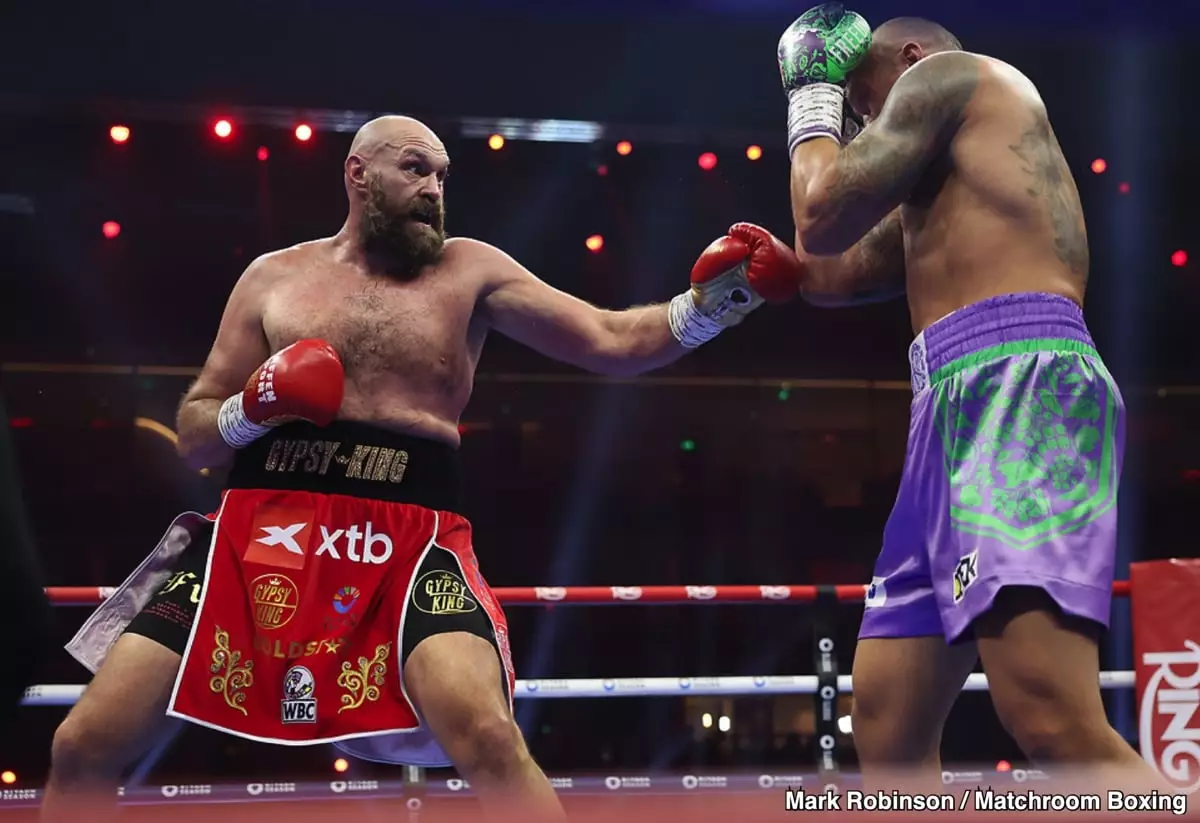The recent heavyweight clash between Tyson Fury and Oleksandr Usyk has sparked a plethora of discussions, disagreements, and reflections among boxing aficionados, trainers, and fans alike. Frank Warren, a significant figure in the boxing world, recently shared his thoughts after rewatching the fight. His insights open a window into the varied interpretations of the match’s dynamics and the complexities that emerge in the aftermath of competition.
Warren’s Reflection on the Fight
In the aftermath of the fight, Warren reevaluated his initial assessment and concluded that it was “closer” than he had previously perceived. While he still maintained that Fury deserved to win, his reexamination indicates the nuance inherent in scoring boxing matches, particularly one as fiercely contested as this. Boxing judges often consider several factors: effective aggression, clean punches landed, and ring generalship. In this encounter, Usyk, with his unorthodox style and calculated aggression, appeared to dominate in the latter stages, leaving Fury at a tactical disadvantage.
For Warren, this suggests a disconnect between what he believes to be true and what was evident in the judging criteria. Fury’s performance was critiqued, drawing attention to how he struggled during critical moments of the match. The scores of 116-112 across the board in favor of Usyk suggest a consensus among the officials, highlighting that Fury’s strategy, or lack thereof, ultimately cost him the match.
Another critical aspect of Fury’s performance was his interaction with his trainer, SugarHill Steward. Reports indicate that Fury failed to adhere to Steward’s instructions, particularly when it came to maintaining pressure on Usyk. Instead of utilizing aggressive tactics, Fury often retreated when the fight became competitive, particularly following body shots from Usyk. This regression not only thwarted Fury’s chances but also brought into question the effectiveness of his corner.
Many analysts argue that in critical championship rounds, clear communication from the corner is essential. It appears that Fury was not fully aware of his precarious position in the match. Had Steward conveyed the urgency of the situation more effectively, it’s conceivable that Fury may have approached the final rounds with a more aggressive mindset, potentially altering the fight’s outcome. The coaching aspect serves as a crucial undercurrent in discussions about victory and defeat—it is not solely about the fighter’s skill but also about the strategic guidance they receive.
Warren’s belief that Fury deserved the victory contrasts sharply with the sentiment shared by a majority of observers. The general consensus among fans and analysts suggests that Usyk’s performance was superior in both skill and tactics. This divergence raises intriguing questions about bias and the subjective nature of sports commentary. It’s not uncommon for fans to develop allegiances that may cloud their judgment, leading them to perceive fights differently than neutral observers.
The distinction between a fan’s passionate attachment to a fighter and an unbiased analysis of the bout can often create tension in the boxing community. Even with a wealth of experience, Warren’s assertion is met with skepticism. Many viewers, unencumbered by personal bias, noted Usyk’s dominance and tactical efficiency throughout the fight. This highlights the need for fighters and their teams to remain receptive to criticism and external insights in order to refine their strategies for future bouts.
As the dust settles following this significant bout, both Tyson Fury and his team face critical evaluation. Opportunities for growth arise from defeat, paving the way for better strategies in future fights. What this rematch illustrates is not merely the physical prowess of the fighters but also the mental and emotional complexities involved in boxing.
In light of Warren’s reflections, it is crucial for the boxing community to engage in constructive dialogue regarding fight analyses, tailoring feedback that can lead to improved performances. The Fury vs. Usyk clash may have concluded, but its implications resonate through the sport, serving as a reminder of how every match is an opportunity for learning and adaptation. Regardless of personal perspectives, the narrative surrounding this contest highlights the dynamic relationship between coaches, fighters, and the sport itself, affirming that boxing is as much a mental game as it is a physical one.

